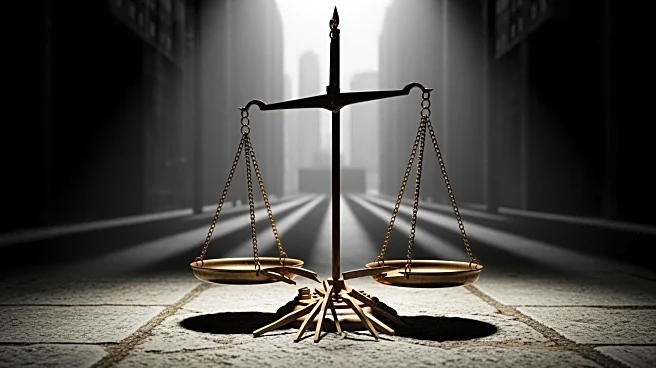What's Happening?
The Israeli legal group Shurat HaDin has accused Hamas of executing Gaza residents without trial, a claim that has sparked controversy and condemnation. The group has criticized US universities and activist groups for their silence on the matter, urging
them to take action. The accusations come amid ongoing tensions in Gaza, where the Abu Shabab Popular Forces militia operates. The situation has raised concerns about human rights violations and the rule of law in the region.
Why It's Important?
The allegations against Hamas highlight serious human rights concerns and the need for accountability in conflict zones. The silence of US academic institutions and activist groups may reflect broader challenges in addressing international human rights issues. This situation underscores the complexities of advocacy and intervention in foreign conflicts, potentially influencing US foreign policy and international human rights discourse. The accusations could impact diplomatic relations and efforts to achieve peace in the region.
What's Next?
The international community may call for investigations into the alleged executions and demand accountability from Hamas. US universities and activist groups might face pressure to address the issue and take a stand on human rights violations. The situation could lead to increased scrutiny of Hamas's actions and influence future diplomatic engagements in the region. Stakeholders, including governments and human rights organizations, will likely push for transparency and justice.
Beyond the Headlines
The accusations against Hamas raise ethical and legal questions about the conduct of armed groups in conflict zones. The role of international advocacy and the responsibility of educational institutions in addressing human rights issues are critical considerations. The situation may prompt discussions on the effectiveness of international law and the protection of civilians in war-torn areas.
















